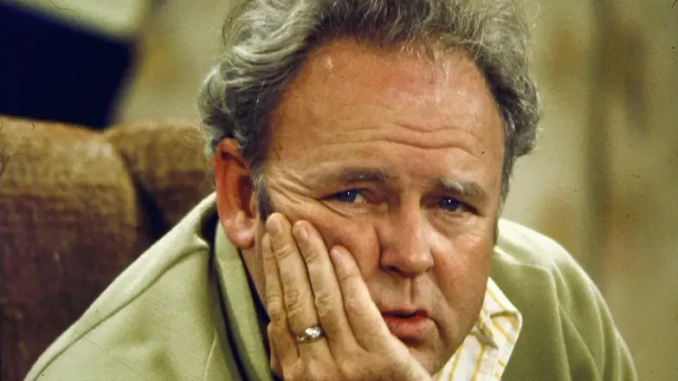
Introduction
When you think of groundbreaking television, “All in the Family” is hard to ignore. This iconic show not only entertained but also challenged societal norms. The Bunker family—Archie, Edith, Gloria, and Mike—became household names, and their influence on television is still felt today. Let’s take a look back at the cast of “All in the Family” and explore how they changed the landscape of American television.
The Bunkers: A Closer Look at Each Character
Archie Bunker: The Patriarch
Archie Bunker, portrayed by Carroll O’Connor, was the crass yet lovable patriarch of the Bunker family. His outdated views and unapologetic nature sparked both laughter and debate.
- Impact on TV: Archie’s character challenged stereotypes and tackled controversial issues such as racism, gender roles, and class struggles, opening the door for more complex characters in sitcoms.
Edith Bunker: The Heart of the Family
Edith, played by Jean Stapleton, was the nurturing and patient wife who balanced Archie’s boisterous personality with grace.
- Significance: Edith represented the quiet strength of women in a changing society. Her character demonstrated that empathy and understanding could prevail even in the face of ignorance.
Gloria Bunker: The Progressive Daughter
Gloria, portrayed by Sally Struthers, was the spirited daughter who often found herself at odds with her father’s traditional views.
- Cultural Relevance: Gloria embodied the voice of a new generation, advocating for women’s rights and social justice, which resonated with audiences during the feminist movement of the 1970s.
Mike Stivic: The Liberal Son-in-Law
Mike, played by Rob Reiner, was Gloria’s husband and the intellectual counterpoint to Archie’s often backward views.
- Role in the Show: Mike represented the progressive mindset of the era, challenging Archie’s outdated beliefs and facilitating conversations about politics and social issues.
The Show’s Groundbreaking Themes
Addressing Real Issues
“All in the Family” tackled topics that were considered taboo for television at the time. Issues such as racism, sexism, and the Vietnam War were addressed head-on, often through the lens of humor.
Changing Family Dynamics
The show depicted a more realistic portrayal of family life, showcasing not just love but also conflict and differing viewpoints, which resonated with many viewers.
Cultural Impact of the Bunkers
A Reflection of Society
The Bunkers served as a microcosm of American society in the 1970s. Their interactions reflected the struggles and triumphs of a nation grappling with change.
Influence on Future Sitcoms
The raw honesty and humor of “All in the Family” set a precedent for future sitcoms. Shows like “The Fresh Prince of Bel-Air” and “Modern Family” owe a debt to the groundbreaking work of the Bunkers.
The Legacy of ‘All in the Family’
Awards and Accolades
The show received numerous accolades, including several Emmy Awards, solidifying its place in television history. Carroll O’Connor and Jean Stapleton both received multiple awards for their performances.
Continued Relevance
Even decades later, the themes explored in “All in the Family” remain relevant. With today’s social issues still echoing those of the past, the Bunkers’ legacy serves as a reminder of the importance of dialogue and understanding.
Conclusion
The Bunker family from “All in the Family” changed television forever. Their ability to confront tough issues with humor and heart opened the door for more diverse storytelling in sitcoms. As we look back on their legacy, it’s clear that the Bunkers were more than just characters—they were cultural icons who helped shape the television landscape.
FAQs
1. What made ‘All in the Family’ different from other sitcoms at the time?
The show addressed serious social issues and presented complex characters, breaking away from the typical lighthearted comedy of the era.
2. How did the characters of the Bunker family evolve over the series?
The characters grew in response to societal changes, often confronting and reevaluating their beliefs throughout the series.
3. What impact did ‘All in the Family’ have on future television shows?
It paved the way for sitcoms that tackle real-world issues, influencing shows that followed in its footsteps.
4. How did the audience respond to the controversial topics addressed in the show?
While some viewers were outraged, many appreciated the honest discussions, which sparked dialogue and reflection among audiences.
5. Why do the themes of ‘All in the Family’ remain relevant today?
The issues of race, gender, and family dynamics continue to be pertinent, reminding us that the conversations started by the Bunkers are still necessary.
